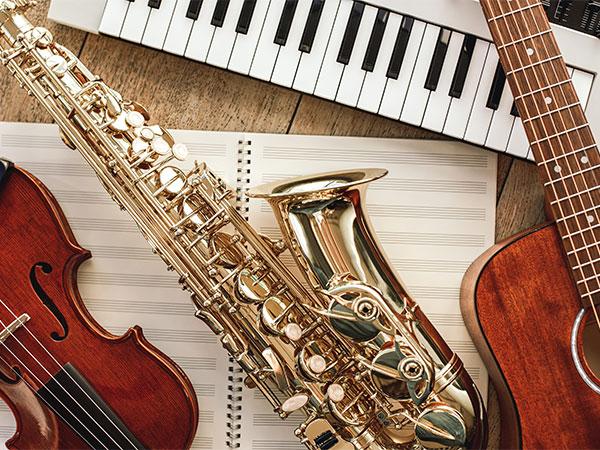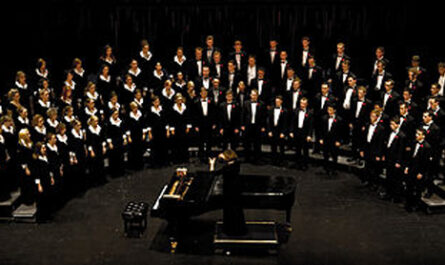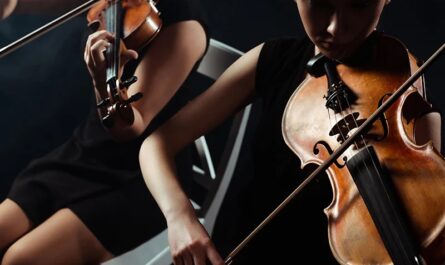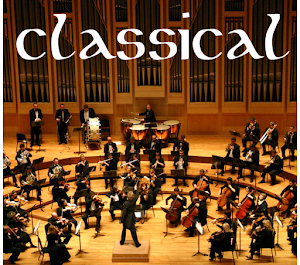Is there someone that is not familiar with the powerful and unique art form that is opera? It combines music, drama, and also theater to create a stunning performance that has captivated audiences for centuries. Its origins can be traced back to Italy in the late 16th century during the Renaissance period. Since then, it has evolved and changed, reflecting the culture and society of its time. In this article, we will explore the history and evolution of opera, its elements, different types and styles, famous composers and singers, its houses and also festivals, its impact on society and culture, and its future.
What is Opera?
Opera is a form of art that combines music, drama, and theater. It is sung in a theatrical setting with costumes, sets, and lighting. It tells a story through music, and it features trained singers who use vocal techniques to express the emotions and feelings of the characters.
The Origins of Opera in Italy
It originated in Italy in the late 16th century, during the Renaissance period. It was a form of entertainment that combined music, drama, and spectacle. The first known opera was “Dafne” by Jacopo Peri, which was performed in Florence in 1598. The libretto was written by Ottavio Rinuccini, and the music was composed by Jacopo Peri.
It quickly gained popularity throughout Italy and spread to other parts of Europe. It was considered a form of high art, and only the aristocracy had access to it. The first public opera house was opened in Venice in 1637, allowing a broader audience to enjoy the performances.
The Evolution of Opera over the Centuries
Over the centuries, opera has evolved and changed, reflecting the culture and society of its time. It has gone through different phases, from the serious, dramatic opera of the 18th century to the light, comedic opera of the 19th and 20th centuries.
In the 21st century, It has continued to evolve, with contemporary composers creating new works that reflect current society and culture. Technology has also played a role in its evolution, with productions incorporating video projections, LED screens, and other innovative techniques.
The Elements of Opera
To understand it fully, it is essential to understand its elements. These include music, libretto, vocal technique, and stage production.
Music
Music is a fundamental element of opera, and it is what distinguishes it from other forms of theater. Its music is usually written for an orchestra, and it is conducted by a conductor who oversees the performance. The music is composed to complement the libretto and convey the emotions and feelings of the characters.
Libretto
The libretto is the text of an opera, and it usually tells a story or a narrative. The libretto is written by a librettist and is set to music by the composer. It is an essential part of an opera as it provides the audience with the storyline and the context for the music.
Vocal Technique
Vocal technique is critical to opera, and it involves the use of different vocal styles to convey the emotions and feelings of the characters. Its singers must also undergo extensive vocal training to develop their skills and learn how to use their voices effectively.
Stage Production
Stage production involves the use of sets, costumes, lighting, and also special effects to create a visually stunning performance. It is an essential element of opera and can enhance the emotional impact of the music and libretto.
The Different Types and Styles of Opera
Over the centuries, It has gone through different phases and styles, reflecting the culture and society of its time. Some of the most popular types and styles includes:
Opera Seria
Seria is a serious, dramatic opera that was popular in the 18th century. It usually tells a story of a tragic hero or heroine who faces various challenges and obstacles.
Opera Buffa
Buffa is a comic, lighthearted opera that was also popular in the 18th century. It usually tells a story of ordinary people and their daily lives, and it often includes humorous situations and characters.
Grand Opera
Grand is a large-scale, epic opera that was popular in the 19th century. It usually tells a story of historical events or legendary figures and is also known for its elaborate sets, costumes, and special effects.
Comic Opera
Comic is a light, comedic opera that was popular in the 19th and 20th centuries. It usually tells a story of ordinary people and their daily lives, and it often includes humorous situations and characters.
Modern Opera
Modern Opera is a contemporary opera that reflects current society and culture. It often tackles social and political issues and also uses innovative techniques and styles to convey its message.
Famous Composers and their Operas
Opera has produced many famous composers who have hence created some of the most iconic and memorable works in the genre. Some of the most famous composers and their operas include:
Wolfgang Amadeus Mozart
Wolfgang Amadeus Mozart is one of the most famous composers of all time. Some of his most famous operas include “The Marriage of Figaro,” “Don Giovanni,” and also “The Magic Flute.”
Giuseppe Verdi
Giuseppe Verdi was an Italian opera composer who was famous for his dramatic and emotional works. Some of his most famous operas include “Aida,” “La Traviata,” and also “Rigoletto.”
Giacomo Puccini
Giacomo Puccini was an Italian composer who was known for his romantic and emotional operas. Some of his most famous works include “La Bohème,” “Tosca,” and also “Madama Butterfly.”
Richard Wagner
Richard Wagner was a German composer who was famous for his epic and grandiose operas. Some of his most famous works include “The Ring Cycle,” “Tristan and Isolde,” and “The Flying Dutchman.”
Contemporary Composers
In addition to the famous composers of the past, there are many contemporary composers creating new works in the genre. Some of these composers include John Adams, Philip Glass, and Thomas Adès.
Famous Opera Singers
It has produced many famous and iconic singers who have left a lasting imprint on the genre. Some of the most famous singers include:
Enrico Caruso
Enrico Caruso was an Italian tenor who was the first international operatic superstar. He was known for his powerful and expressive voice and also recorded many famous operas.
Maria Callas
Maria Callas was a Greek-American soprano who was also one of the most iconic and influential opera singers of the 20th century. She was hence known for her dramatic and emotional performances.
Luciano Pavarotti
Luciano Pavarotti was an Italian tenor who was known for his powerful and expressive voice. He was also one of the most famous and beloved singers of the 20th century.
Contemporary Singers
There are many contemporary opera singers who are making a name for themselves in the genre. Some of these singers include Joyce DiDonato, Anna Netrebko, and also Jonas Kaufmann.
Opera Houses and Festivals
Its houses and festivals play a vital role in the world of opera, providing a platform for performances and therefore showcasing the best works and artists. Some of the most famous houses and festivals include:
The Metropolitan Opera (New York)
The Metropolitan Opera is one of the most prominent opera companies in the world, and it is based in New York City. Hence it has a long and rich history and has featured some of the most famous singers and productions in the genre.
Royal Opera House (London)
The Royal Opera House is one of the its leading houses in Europe, and it is also based in London. It has however been the home of many famous productions and singers.
La Scala (Milan)
La Scala is one of the most famous opera houses in the world, and it is located in Milan, Italy. It has a long and rich history and has therefore featured many famous productions and singers.
Bayreuth Festival (Germany)
The Bayreuth Festival is a festival dedicated to the works of Richard Wagner, and it is held annually in Bayreuth, Germany. It is also one of the most famous and prestigious festivals in the world.
Opera’s Role in Healing the Human Spirit
It is not only a form of entertainment but a source of healing for the human spirit. As a music therapist, I have witnessed firsthand the power of opera to help individuals cope with trauma, illness, and emotional pain.
I once worked with a patient named Sarah, who was diagnosed with terminal cancer. She had always loved music but had never been exposed to opera. When I introduced her to the music of Giacomo Puccini, specifically his performance “La Bohème,” she was instantly moved by the beauty of the music and the emotional depth of the storyline.
As Sarah’s illness progressed, she found solace in listening to opera and attending performances whenever she could. The music provided a sense of comfort and peace during a difficult time in her life.
It has also been used in therapy to help individuals with post-traumatic stress disorder (PTSD) and other mental health conditions. Its emotional intensity can help individuals process and express their feelings in a safe and supportive environment.
Through its ability to evoke strong emotions and connect with our deepest sense of humanity, it has the potential to heal and therefore inspire. As we continue to explore the future of opera, we must not also forget its unique role in promoting well-being and healing for individuals and communities.
The Impact of Opera on Society and Culture
Opera has had a significant impact on society and culture throughout history. It has also influenced literature, painting, and other art forms, and it has been used in film, television, and popular music. It has also addressed social and political issues of its time, such as class struggles, gender roles, and political revolutions.
The Future of Opera
The challenges facing it today are significant, but the potential for innovation and evolution remains strong. The need for innovation and adaptation is therefore essential to keep the genre relevant and accessible to modern audiences. The potential for opera to continue to evolve and remain relevant in modern society is strong, and it will continue to inspire and captivate audiences for generations to come.
Conclusion
Opera is a unique and timeless art form that has played a significant role in classical music for centuries. Its music, libretto, vocal technique, and stage production have captivated audiences and inspired countless artists across various mediums. As long as there are composers, singers, and audiences who appreciates its power, it will continue to thrive and inspire future generations. The challenges facing it are significant, but the potential for innovation and evolution remains strong. It will also continue to shape the future of classical music and inspire audiences around the world.




